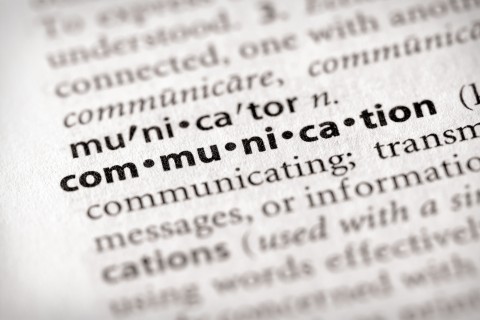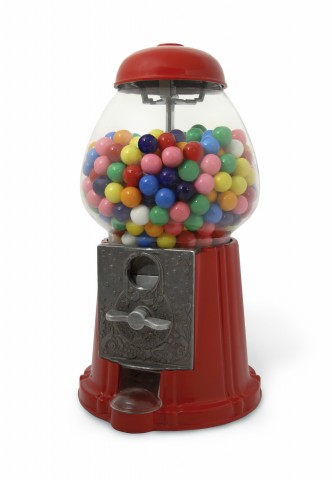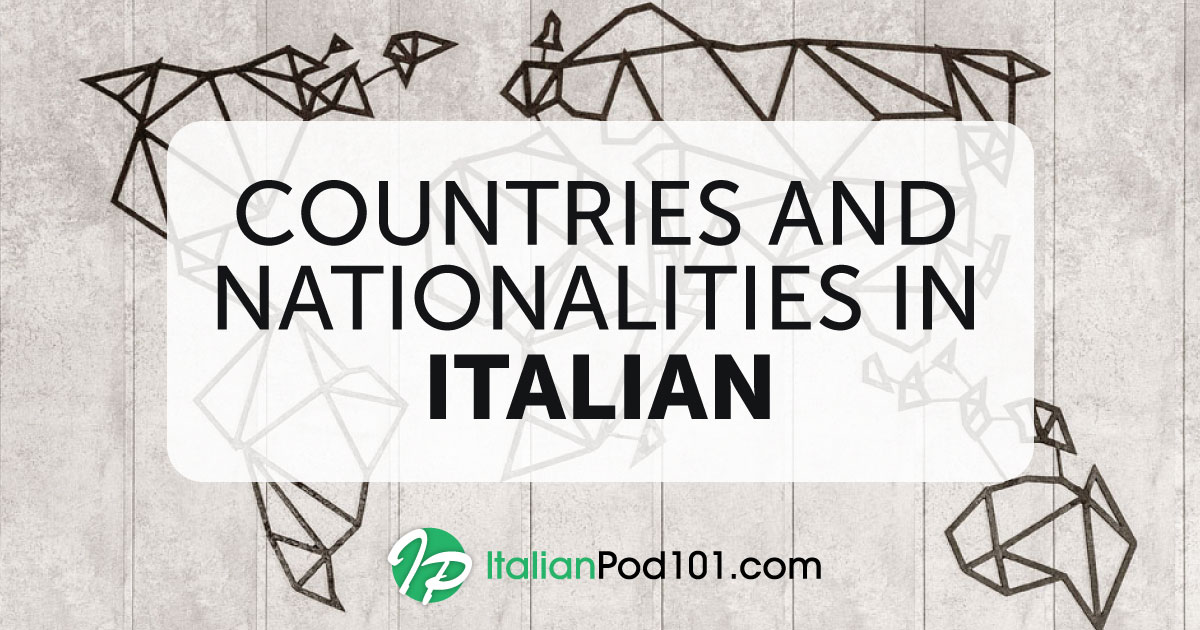
Languages are influenced by a variety of factors, and words often travel from one language to another by way of loans, borrowings, translations, and general misuse. Some languages, including English and Italian, have had more of an influence on the world than others and are widely used (and misused) the world over. Italian has been influencing other languages, especially English, for a rather long time. This influence mainly appears in the fields of music, food, and science.
Today, there are also several English words used in Italian. This English influence on Italian is more recent, resulting from the huge influence that British and North American culture have had on our old continent in the last few centuries. Italians have borrowed many words, but sometimes these borrowed words are endowed with a somewhat different meaning than that of the original.
In this article, we’ll guide you through the different word exchanges between English and Italian. You’ll see that studying these commonly used (and misused) words can give you a head start in your vocabulary-building and help you communicate easily even as a beginner.

English, Italian, or Itanglish…as long as we communicate!
 Table of Contents
Table of Contents
- Loanwords
- Introduction to Itanglish
- Do You Speak Itanglish?
- English Words Derived from Italian
- Conclusion
Loanwords
We may not even realize it, but loanwords are everywhere and we use them all the time. But what exactly are they? A loanword is defined as a word that has been borrowed from another language. For example, an English word that becomes incorporated into another language (like Italian) without translation would be considered a loanword.
So, don’t be puzzled if you’re walking around Milan one evening and hear someone say:
- Dove butto il chewing gum? (“Where do I throw the chewing gum?”)
Or:
- Durante l’happy hour offrono sandwich e cocktail. (“During happy hour, they offer sandwiches and cocktails.”)
Even though half of the words are English, these are perfectly correct Italian sentences.
Of course, you could have said: Dove butto la gomma da masticare? and Durante l’aperitivo offrono panini e bibite alcoliche, but nobody speaks like that anymore. This is because some words have entered the common vocabulary with such force that using the original Italian word sounds a bit old-fashioned.

Chewing gum o gomme da masticare?
Although Italian has lent a great number of words to every other language, some “purists” hate to see our language “contaminated” by other languages. This feeling is especially strong toward Anglicisms, which they believe there are way too many of these days. But the reality is that languages change constantly and we have to accept the way people talk.
Here are some of the most commonly used English loanwords and their Italian equivalents.
| Sandwich | Hai portato i sandwich? (“Did you bring sandwiches?”) |
| Panino. It is rather funny that we borrow the English word for it, even though we have exported the Italian name for it all over the world… | |
| Cocktail | Vorrei un cocktail esotico. (“I would like an exotic cocktail.”) |
| Italians have always been more into wine, so maybe that’s why there is no real equivalent for this word unless you make a huge periphrasis: mistura di bevande alcoliche con succhi o frutta e ombrellini (literally: “mixture of alcoholic drinks with juice or fruit and small umbrellas”). | |
| Chewing gum | Non ingoiare il chewing gum! (“Don’t swallow the chewing gum!”) |
| Gomma da masticare. Nobody really says this anymore, but you may hear people call it gomma or cicca in some parts of Italy. | |
| Happy hour | A che ora è l’happy hour? (“What time is the happy hour?”) |
| Aperitivo or Apericena. They also sound happy, right? You can read our blog post on Untranslatable Italian Words if you want to learn more about apericena and other words that cannot be easily translated. | |
| Smartphone | Ho comprato uno smartphone nuovo. (“I bought a new smartphone.”) |
| Telefonino. This cute word was actually created as a name for the old-style cell phones, but it is still used today for the smart models. | |
| Chat | Ne parliamo in chat? (“Should we get on a chat?”) |
| If you chat in person, it’s chiacchiere, but there is no Italian equivalent for chatting over the internet. That said, you can ‘Italianize’ the word “chat” by conjugating it as a regular verb: chattare (io chatto, tu chatti, lui/lei chatta, ecc.). | |
| T-shirt | Che taglia è questa t-shirt? (“What’s the size of this T-shirt?”) |
| Maglietta (a maniche corte). | |
| Weekend | Cosa fate per il week-end? (“What are you doing for the weekend?”) |
| Fine settimana. | |
It’s interesting to note how Italians use these English words with different syntactic rules. For example, we don’t add -s to make them plural (i sandwich, gli smartphone, le t-shirt) and we do assign them the same gender as the Italian equivalent:
- il panino → il sandwich
- la maglietta → la t-shirt
- il fine settimana → il weekend
All of the words above have been used for decades and are part of everybody’s daily vocabulary. But there are other loanwords that have recently entered the jargon of young Italians and professionals of the new economy.
It’s considered “cool” to use the English equivalents of these words, even though they have perfect Italian equivalents. So be aware: if you’re in an Italian work environment, you might actually end up listening to a lot of English words!
Il marketing del brand del “Made in Italy.” (The marketing of the “Made in Italy” brand.)
| Marketing | Lei è il nuovo direttore marketing? (“Are you the new marketing director?”) |
| Vendita. Of course, “marketing” refers to everything that has to do with selling strategies and all the communication that goes with it. | |
| Business | Dobbiamo fare crescere il business. (“We need to grow our business.”) |
| Affari, attività economica. This word is also widely used in combination with other words, as in: business class, business school, core business, and show business. | |
| Brand | Ferrari è il brand più forte al mondo. (“Ferrari is the world’s strongest brand.”) |
| Marchio. It is not uncommon to hear people talking about il brand del “Made in Italy.“ Believe it or not, that is a correct Italian sentence! | |
| Meeting | Il meeting è alle tre. (“The meeting is at three.”) |
| Riunione. Besides being used in the workplace, it is also used for some sporting competitions, such as in: il meeting di atletica (“the track and field competition”). | |
| Briefing | Hai letto il briefing di oggi? (“Did you read today’s briefing?”) |
| Istruzioni brevi. Did you know that the term “briefing” originally derives from the Latin brevis (“short”)? And now it has returned to Italian as a loanword… | |
| Know-how | È importanto valorizzare il know-how. (“It is important to enhance the know-how.”) |
| Competenze. | |
| Gap | Il gap salariale è troppo alto! (“The retribution gap is too high!”) |
| Divario, dislivello. | |
| Coffee break | Ci meritiamo un coffee break. (“We deserve a coffee break.”) |
| Pausa caffè. Even if you only need a few seconds to drink an espresso ristretto, it doesn’t mean you have to miss out on a longer break. 😉 | |

Time for a coffee break (a rather old time…).
Introduction to Itanglish
All of the loanwords we’ve seen so far tend to make sense. They are common, they are universal, and they help us communicate. But some words have taken on a life of their own to form a ‘language’ called Itanglish. This consists of English words that are used in Italian communication on a daily basis, but with a twist.
This is a rather interesting phenomenon and one that exists in every language. Basically, for some mysterious reason, an English word enters the Italian common use but with a slightly different meaning from the original word. In the end, the word looks and sounds English, but it is not English anymore because its meaning is altogether something else. Now, the origin of the meaning of these words is difficult to trace back, but the fact is that everybody in Italy agrees on the same meaning.
Do You Speak Itanglish?
These words are a great source of comedy because Italians will use them with the definite conviction that any English speaker will know exactly what they mean. But nothing could be further from the truth. The reality is that, out of context or without the help of the proverbial Italian gestures, nobody will understand… Here are some examples of English words used in the Italian language that might confuse you at first glance.
| Zapping | From the verb “zap,” meaning to destroy your enemy, it has become “to change channels compulsively with your remote control” in Itanglish. |
| Smetti di fare zapping! (“Stop changing channels!”) | |
| Footing | In English, this can refer to the action of moving by foot (“she was seen footing across the field”). It is also used to describe the state of one’s feet having a secure grip on something (“I nearly lost my footing”). For some reason, it is used as a synonym for jogging, or correre, in Itanglish. |
| Faccio footing ogni mattina prima di andare al lavoro. (“I jog every morning before going to work.”) | |
| Smoking | How do you get from “smoke” to dinner jacket or tuxedo? Beats me…but this is the meaning of the Itanglish word! |
| Mio padre metteva lo smoking per andare a teatro. (“My father wore a tuxedo to go to the theater.”) | |
| Flipper | A flipper is a pinball machine. Well, I guess what happened here is that since the little fins you operate to throw the ball back are called ‘flippers,’ the whole machine took that name in Itanglish. |
| Mi piace giocare a flipper. (“I like playing with the pinball machine.”) | |
| Box | We all know what a box is, right? Well, not exactly… In Itanglish, box has become a small enclosed space, like a garage for a car or a box doccia (“a shower cabin”). |
| Questo appartamento è dotato di un box? (“Does this apartment come with a garage?”) | |
| Mister | No, we are not talking about just any man. In Itanglish, the mister is one specific man: the coach (also known as allenatore) of a team. This is normally used for the coach of a soccer team. |
| Il mister ci ha fatto i complimenti per la partita. (“The coach praised us for the game.”) | |
| Spider | You don’t like spiders? I bet you’ll like these, though. In Itanglish, this word refers to a two-seat sports car. So how do you go from a car to a spider? Apparently, in the past, the disproportion between the size of the tires and the small cockpit made them look like spiders… |
| Il mio sogno è avere una spider rossa. (“My dream is to have a red sports car.”) | |
| Toast | When you think of toast, a single slice of slightly toasted bread comes to mind. But in fact, if you ask for a toast (pronounced un tost) in Italy, you will receive two slices of toasted bread with ham and cheese between them. |
| A pranzo ho mangiato solo un toast. (“I just ate a ham and cheese toast for lunch.”) | |
| Golf | If you’re thinking of long afternoons playing on green grass, think again. Because for some strange reason, Italians use un golf to refer to a light woolen pullover. Why? Who knows… And if you hear someone talk about un golfino, it’s just another cute way of saying the same thing. |
| Porta il golf che stasera farà freddo. (“Bring a pullover because it will be cold tonightl.”) | |
| Slip | Maybe because it means “to slide” or “to move quickly” in English, this word means “underwear” in Itanglish. It makes sense, right? And of course, if it is very small or belongs to a little child, it turns into lo slippino. |
| Ho comprato tre slip per 10 euro. (“I bought three pairs of underwear for 10 euros.”) | |
| Feeling | In Itanglish, this is a very particular emotional state. It is when there’s a spontaneous and immediate emotional bond between people…a special understanding. |
| Fra di noi c’è del feeling. (“There’s chemistry between us.”) | |
| Fiction | In English, fiction refers to any literature in the form of prose, such as novels or short stories, that tell a story not directly based in reality. But in Itanglish, it has taken on the meaning of “TV series.” Once upon a time, they were called sceneggiati. |
| Non posso perdere l’ultima puntata della mia fiction preferita. (“I can’t miss the last episode of my favorite TV series.”) | |

Basta zapping! (“Stop channel surfing!”…Let go of the remote!)
English Words Derived from Italian
How did you like speaking Itanglish? Well, you should know that there are also many Italian loanwords that are commonly used in English. Most of them belong to the realm of music, arts, food, and science.
Let’s review some of them:
→ From music
- Fiasco
- Soprano
- Opera
- Diva
- Piano
- Prima donna
- Concerto
- Finale
- Ballerina
→ From the arts
- Chiaroscuro
- Scenario
- Mask (maschera)
- Studio
→ From science
- Volcano (vulcano)
- Lava
- Influenza
- Medico
- Malaria
- Quarantine (quarantena)
- Tarantula (actually, from the city of Taranto)
→ From food (of course)
- Lasagna
- Spaghetti
- Pizza
- Broccoli
- Mozzarella
- Panino
- Pasta
- Gelato
- Pesto
- Granita
- Gusto
- and tons of others…
Conclusion
As you’ve seen in this guide, there are plenty of English words in Italian to help you start communicating even as a beginner! You’ve also seen some Itanglish words that will take some getting used to, but which will make your speech that much more natural once you do. Did we forget any important Itanglish word that you’ve heard before? Tell us about it in the comments!
Keep working on and having fun with your Italian studies on ItalianPod101.com, where you can find tons of vocabulary lists, free resources, and even mobile apps.
Remember that you can also use our Premium PLUS service, MyTeacher, to get personal one-on-one coaching. Your private teacher will guide you so that you always know what to study next, based on your needs and progress. He or she will provide you with assignments, personalized exercises, and recorded audio samples to help boost your progress. There is no faster way to learn Italian than with ItalianPod101!










